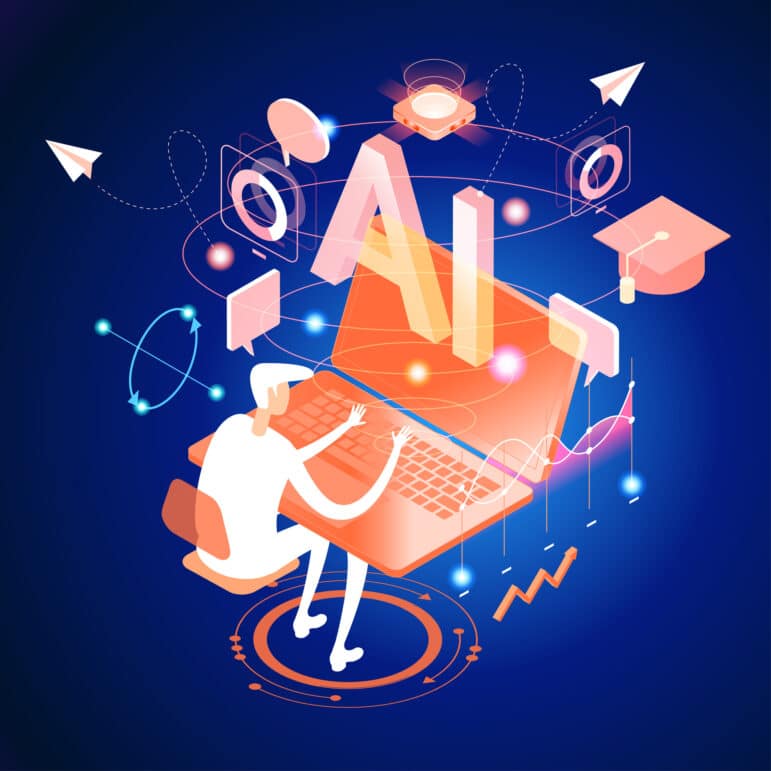Written By: Lauren Seberos, Marketing Coordinator, Lyssn

Scaling high-quality training for child welfare workers is one of the most urgent and difficult challenges in human services today. Turnover, burnout, limited resources, and inconsistent practices all hinder workforce development. However, emerging AI-powered tools are offering a new path forward. In our recent webinar, “Scaling Child Welfare Workforce Training with AI Technology,” panelists explored how modernized practices are reshaping the training landscape. Below we’ll provide insight into the five key takeaways from the discussion.
Couldn’t attend live? Watch the full recording!
#1: High Turnover and Caseloads Challenge Workforce Stability
Child welfare training is shaped by a complex set of obstacles that impact workforce development and service quality. First off, high turnover and recruitment difficulties limit the ability to build and maintain a skilled workforce. For the current providers on staff, inconsistent training and limited practice can lead to unpredictable care quality, while systemic bias and disparities continue to affect outcomes.
Alongside these issues, heavy caseloads and limited access to preventative services reduce opportunities for workers to build and apply critical skills, reinforcing ongoing gaps in training and support.
#2: Effective Child Welfare Training is Multi-Faceted
The best training programs go beyond delivering information. They inspire learning through motivation, real-world practice, structured feedback, and trauma-informed scaffolding. Comprehensive support programs include standardized, evidence-based protocols, regular feedback, and ongoing updates from supervisors. Such robust programs have been proven to reinforce core skills effectively.
Integrating training with culturally responsive care, along with access to early intervention and prevention programs, ensures workers are better equipped to meet the complex needs of children and families.
#3: AI Tools Deliver Instant Feedback and Skill-Building Practice
AI is becoming a valuable partner in child welfare training—enhancing, not replacing, in-person learning. Through features like practice vignettes, immediate feedback, and ongoing performance insights, Lyssn, an AI tool that provides evidence-based quality training & quality improvement (QI) for many child welfare agencies, helps create a continuous improvement loop.

Our AI tool is just one example of how technology reinforces skill development in a safe, supportive environment, allowing workers to build confidence and competence before applying those skills in the communities they serve.
#4: AI Enhances Trauma-Informed Child Welfare Training
Trauma-informed care training is most effective when it emphasizes practical skill development supported by immediate feedback and coaching. AI-enabled microlearning allows child welfare workers to build and apply trauma-sensitive skills in real time, offering a more targeted and impactful approach to professional development.
#5: Drive Lasting Impact in Child Welfare with Proven Approaches
Child welfare practice is most effective when it centers on trauma-informed and evidence-based approaches, such as Motivational Interviewing. These models promote safety, trust, empowerment, and resilience by recognizing families’ unique strengths and needs. Family-centered practices and holistic wraparound services—often delivered through integrated care—support lasting outcomes, while trauma-specific, evidence-based interventions help address the deep impacts of adversity.
Child Welfare Agencies Should Uplift Training That Sticks
The demands of today’s child welfare systems call for smarter, scalable, and more human-centered training models. A reimagined approach to workforce training addresses real-world challenges, builds practical skills, and fosters resilience among both workers and the families they serve.
AI-powered tools, such as Lyssn, offer a promising path forward by enhancing learning through simulation, feedback, and the opportunity for data-driven supervision without replacing the critical human connection at the heart of this work. By integrating best practices into scalable, technology-supported training, organizations can better prepare their workforce to deliver consistent, effective, and compassionate care in the face of complex and evolving needs.
To take a deep dive into these topics, watch the full webinar recording. Get a comprehensive look at these concepts and discover how AI is shaping the future of workforce development.
Explore how we at Lyssn are transforming child welfare training with practical, evidence-based solutions by visiting www.lyssn.io or connecting with our team.
About the Author

Lauren Seberos
Marketing Coordinator at Lyssn
Share this post on your social media accounts:
The viewpoints expressed in this post are the author’s own and do not necessarily reflect the policies or views of APHSA.
